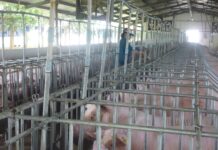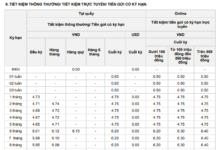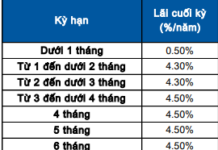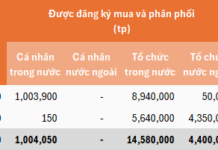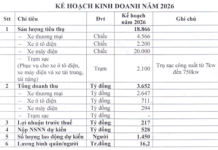Resolving obstacles for the real estate market
Mr. Le Hoang Chau – Chairman of the Ho Chi Minh City Real Estate Association (HoREA) evaluates that it is necessary and urgent to build the draft “Pilot project to propose to the National Assembly a resolution allowing the pilot implementation of commercial housing projects through agreements on land use rights or other land use rights not regulated by the law”.
“If approved by the National Assembly, it will allow businesses to agree on the acquisition of suitable land types according to the planning or other land use rights that are not approved for investment, while approving the investor to implement commercial housing projects. It will resolve the existing obstacles and difficulties for the real estate market to develop safely, healthily, and sustainably,” said the Chairman of HoREA.
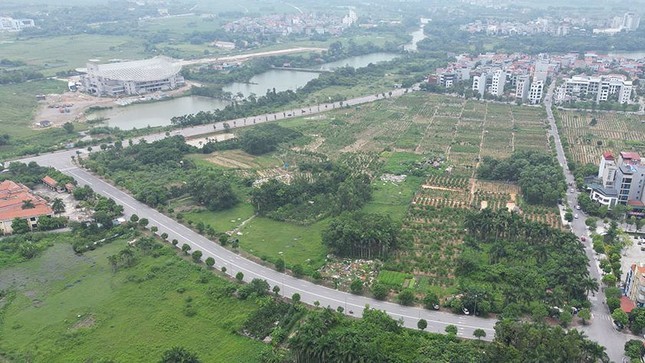
“The pilot project to implement commercial housing projects through agreements on land use rights or other land use rights” will resolve the existing obstacles and difficulties for the real estate market.
According to Mr. Le Hoang Chau, the Association has found that businesses are only allowed to agree on the acquisition of land use rights in one case of “residential land,” or investors have the right to use land in two cases of “residential land” or “residential land and other land,” so it is used for implementing commercial housing projects. However, there are the following limitations:
First, the Land Law 2024 does not allow investors to agree on the acquisition of land use rights in two cases of “residential land and other land” or “other land that is not residential” to implement commercial housing projects, so it has not fully “institutionalized” the policy of the Party’s Central Executive Committee.
Because the use of land to implement socio-economic development projects through agreements on the acquisition of land use rights is a mechanism to voluntarily transfer land alongside the state mechanism of “land recovery for socio-economic development for national and public interests” to develop, manage, and exploit land funds, create land funds to implement land use rights auctions, and select project investors using land that has been formed in the land law system, from the Land Law 1993, and continues to be maintained until now.
This mechanism has the advantages of shortening the land transfer time from land users to investors if consensus is reached; ensuring reasonable benefit sharing between investors and land users and public interests represented by the State, taken into account in the real estate tax system and state budget provisions at all administrative levels; solving the problem of benefit sharing, balancing interests between land users and investors.
At the same time, this mechanism creates conditions to significantly reduce the litigious situation of those affected by land conversion, ensuring social stability in the process of economic development; significantly reducing the costs and manpower of the administrative system and limiting the negative and cumbersome consequences when the State carries out land recovery.
Moreover, if only investors are allowed to agree on the acquisition of land use rights for “residential land,” there will not be enough “residential land” funds for investment in building commercial housing projects, large-scale urban areas with sufficient technical infrastructure, synchronized social infrastructure, and urban utilities to serve residents and visitors. This is because the largest residential land plot according to the regulations of the land law on the limit of residential land allocation does not exceed 400 m2 (as stipulated in the Land Law 1987), while the largest existing residential land plots in urban areas are only about a few thousand square meters…
Preventing abnormal profits for investors
Second, the fact that investors are not allowed to agree on the acquisition of land use rights for “non-residential land other than residential land” to implement commercial housing projects will force investors to spend a large amount of capital to receive the right to use agricultural land or non-agricultural land that is not residential. However, investors have to face unrecognized risks as they are not recognized as the project owner because they do not meet the conditions for the land fund for commercial housing construction projects to be entirely residential land.
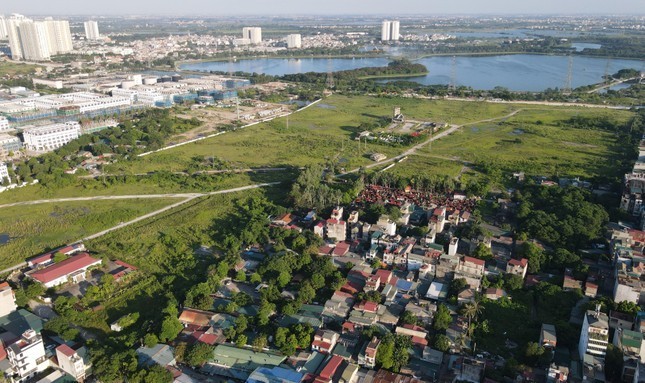
Preventing the situation where investors unjustly enjoy “land price difference” when implementing the mechanism of voluntary agreement between people and businesses in the transfer of land use rights to implement urban projects, commercial housing.
Therefore, HoREA believes that it is very necessary to build the draft “Pilot project to propose to the National Assembly a resolution allowing the pilot implementation of commercial housing projects through agreements on land use rights or other land use rights not regulated by the law,” and it inherits appropriate legal provisions and practices of the Land Law 2013.
The key issue is to prevent and control the risks of revenue loss in the state budget, loss of state property, land resources, and not let the situation arise where investors unjustly enjoy “land price difference” when implementing the voluntary mechanism between people and businesses in the transfer of land use rights to implement urban projects, commercial housing.
If strictly regulated and consistent land price regulations of the Land Law 2024 are fully implemented, it will prevent and control the risks of revenue loss in the state budget, loss of state property, or not let the situation arise where investors unjustly enjoy “land price difference”. This is because only the State has the responsibility and authority to “decide land prices, decide land appraisal methods, decide cases and conditions for applying land appraisal methods” to calculate land use fees, land lease fees for real estate projects, commercial housing.


